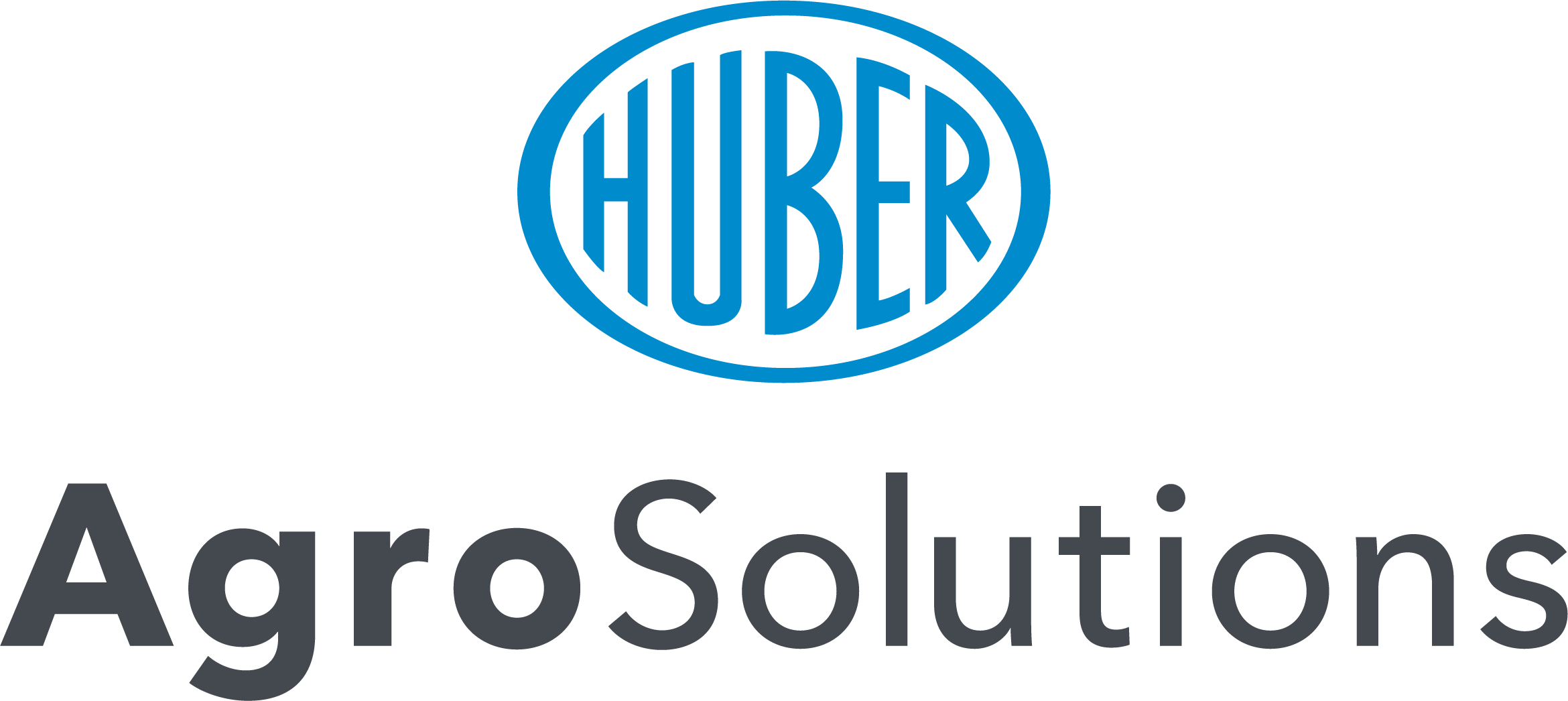Editorials
Thanks to ILSA biostimulants, transplant seedlings are stronger and more reactive
03/09/2018
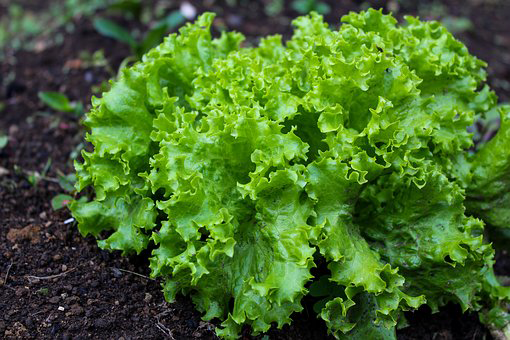
Lettuce and, in particular, the Cannellina, Edmonton, Larabel and Osiride varieties are among the salads with the softest tissues. This is a feature strongly sought after by farmers to enable them to respond to consumer tastes, but tenderness also means delicacy. In fact, these salads have to endure strong transplant stresses and must have the ability to quickly recover from a transplant, since the cycles, in the open field and in the greenhouse, are repeated in a tight manner all around the year. Ilsa, to help the salad seedlings respond to mechanical and environmental stresses that occur during a transplant and in the days immediately after, has studied biostimulants and specific action products and tested them with excellent results.
The agronomic tests programme carried out in collaboration with the agricultural company Vivai Garattoni of San Mauro Pascoli (FC) and coordinated by the Ilsa agronomist Youssef Beni Houd, who is responsible for the Central Italy area, led to obtain seedlings with a radical apparatus that were 20% more developed and with a 10% greater thickening of the vegetative tissues (collar diameter) as compared to the company thesis (graph 1). This is the effect of two applications of ILSARODDER (dose 500 ml/100 l of water) in the phases immediately following seed germination. It is a biostimulant based on amino acids from enzymatic hydrolysis, humic substances and highly soluble phosphorus. It was also mixed with SILIFORCE (dose 200 ml/100 l of water).
The seedlings obtained were, therefore, able to better tolerate manipulations, to free themselves more quickly (absorbing water and nutrients more efficiently) and to adapt quickly to open field conditions. This has led to an increase in the percentage of engraftment, obtaining a higher density of plants per square meter.
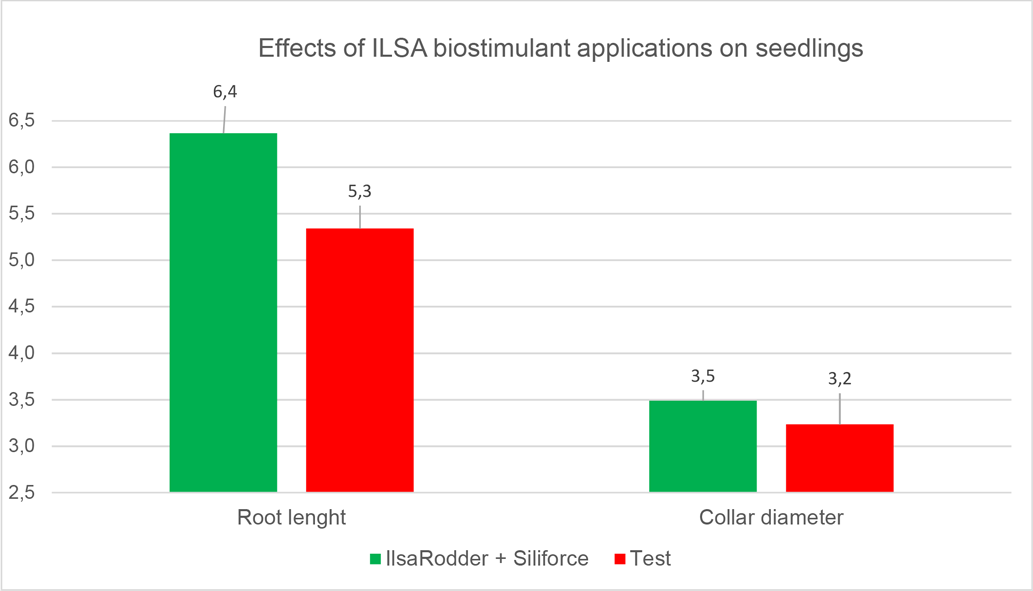
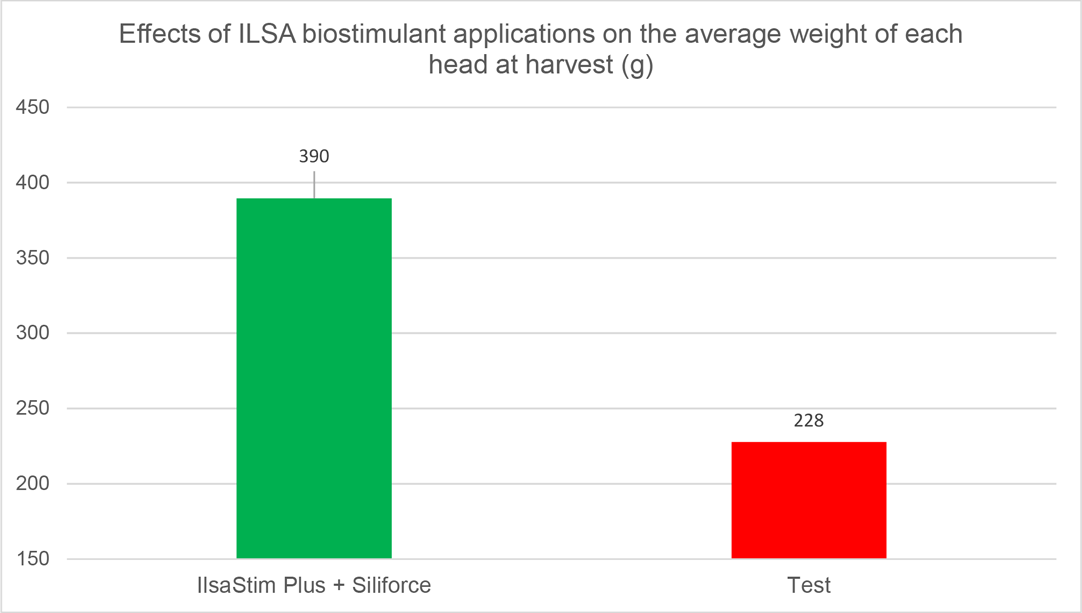
The tests continued post-grafting in the open field with two foliar applications of ILSASTIM+, a biostimulant based on natural Triacontanol and free amino acids, with a dose of 500 ml/100 l of water in association with SILIFORCE with a dose of 200 ml/100 l water. The results obtained (graph 2) showed a 70% increase in the average weight of each head. The increase was due to the ability of plants to absorb water and soil nutrients more efficiently and to better respond to the biotic and abiotic stress that occurred during the vegetative development.
The application of ILSASTIM+, in similar tests carried out on rocket, has also allowed to obtain higher quality productions significantly limiting the presence of nitrates in the leaves, 30% less as compared to the company thesis, ensuring the levels of presence are much lower than those required by the legislation in force and from the market (graph 3).
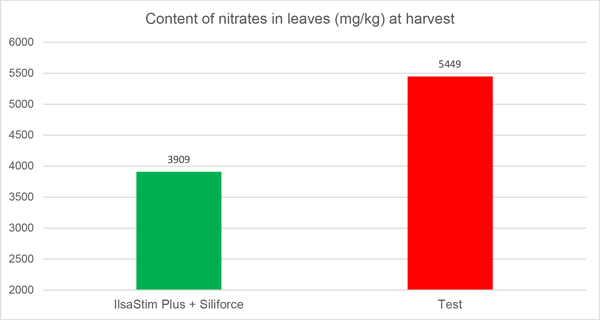
Concluding the use of bio-stimulants, Ilsa in horticulture guarantees superior productions and quality.


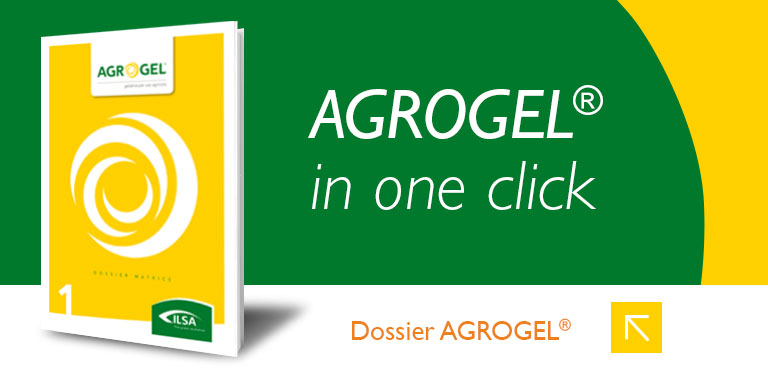
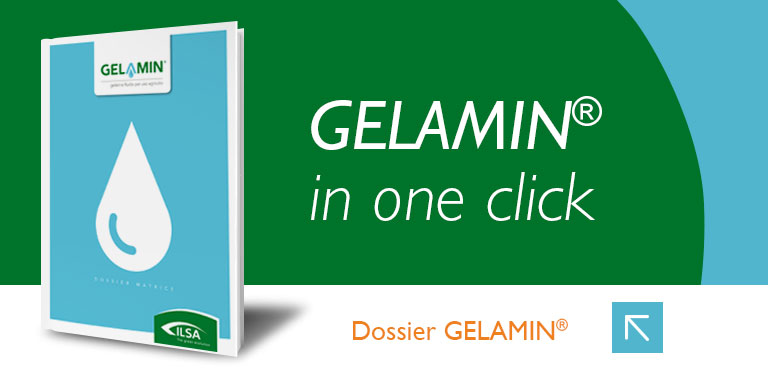
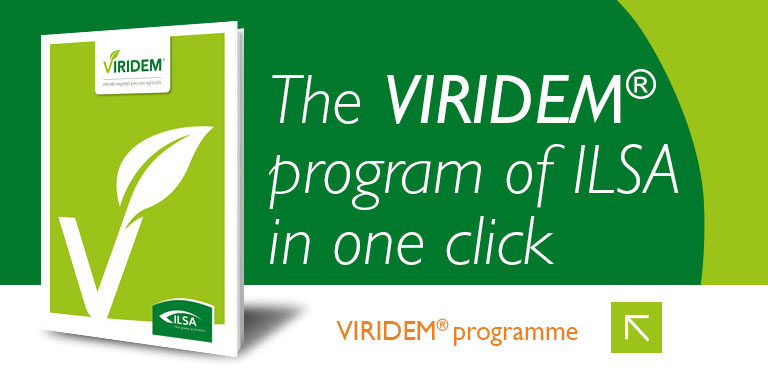
.png)
















